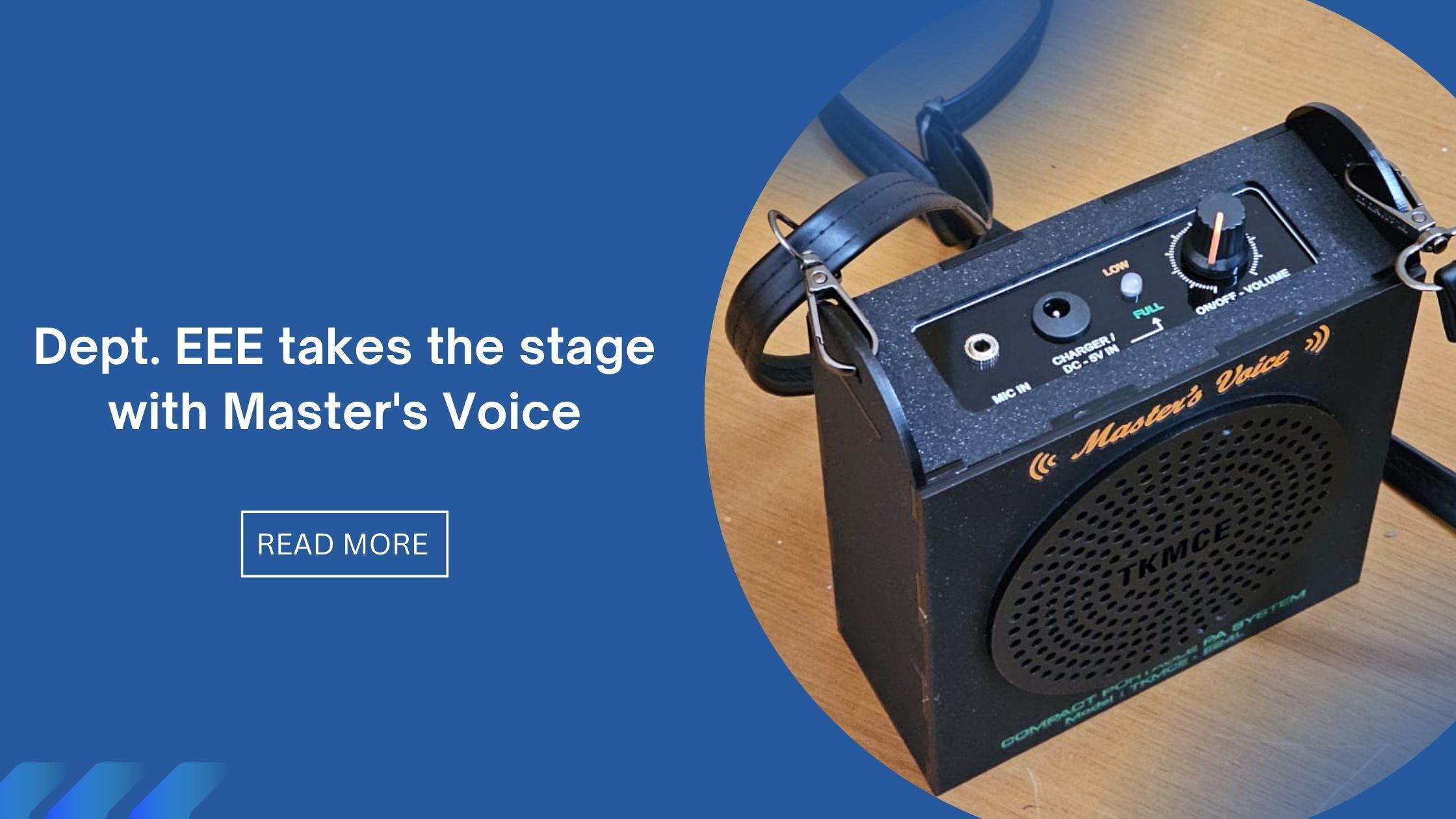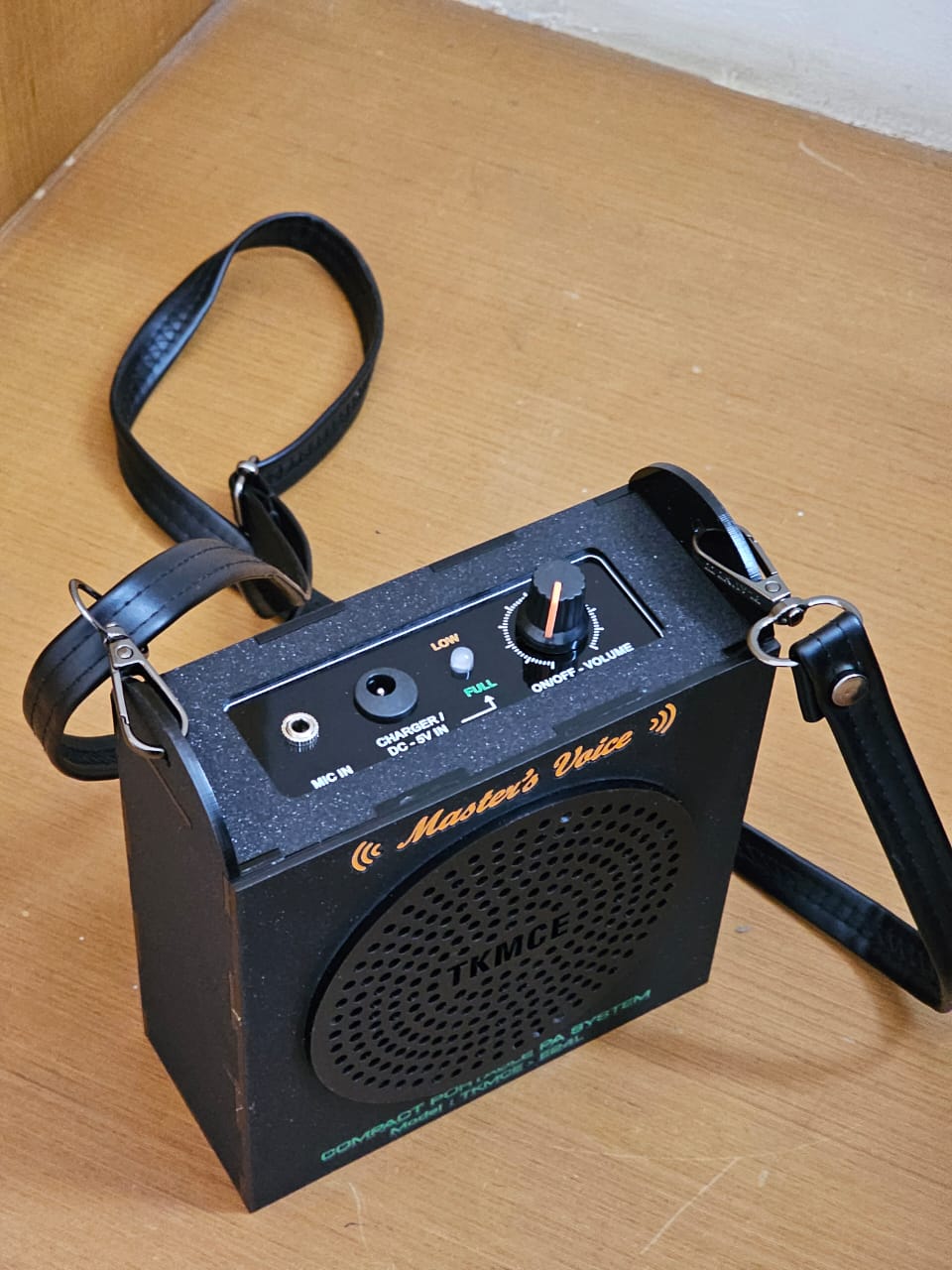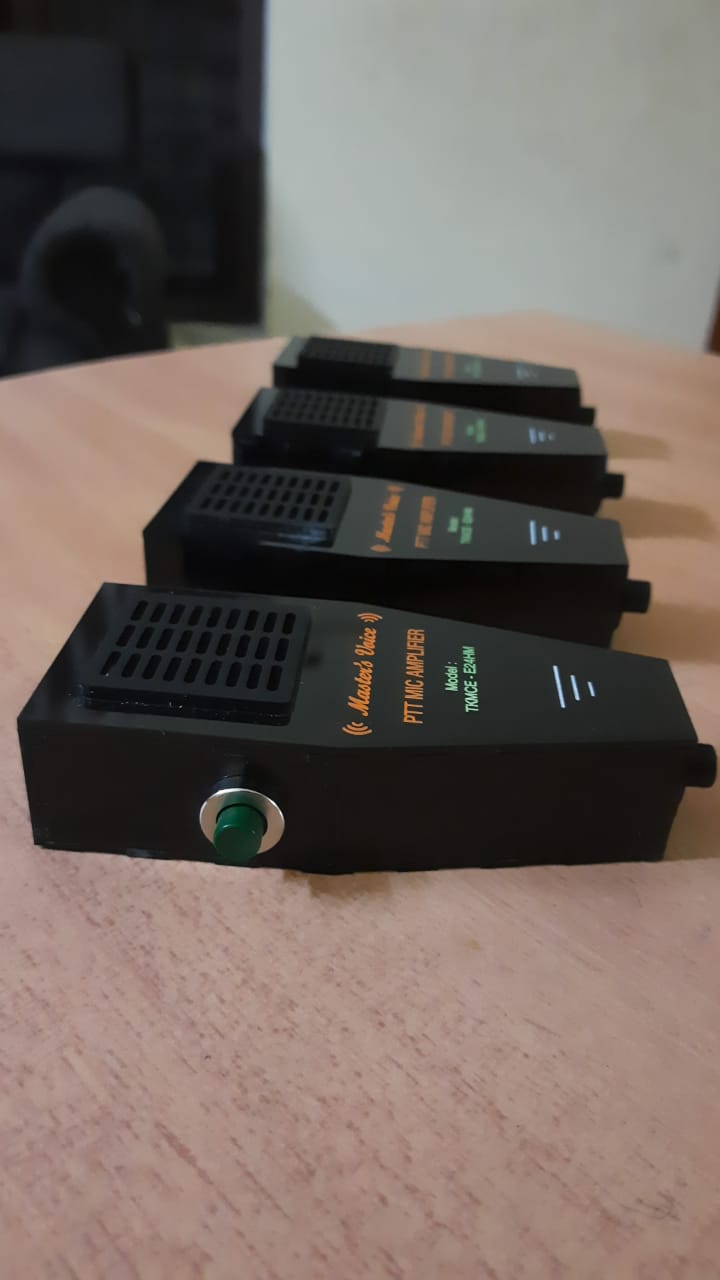Dept. EEE takes the stage with Master's Voice

When addressing a large crowd, teachers often struggle to project their voices effectively. After continuous classes, their voices can get strained and tired. The same goes for meetings, discussions, and gatherings. With the current products available in the market which deteriorate after a short time and the repairs being difficult to find, there was a need for an alternative.
To tackle this problem, make sure their voice is clear and heard, and ensure easy repair, the Department of Electrical and Electronics Engineering has come up with an innovative solution.This new technology promises to make speaking to large groups easier and more comfortable; Master’s Voice,a public address system.
So, what exactly is Master’s Voice?

Master's Voice is a compact and portable PA (public address) system, perfect for classroom teaching, conferences, seminars, and more. At the request of the college, the Department of Electrical and Electronics Engineering at TKMCE, developed this product to benefit both their own staff and everyone else in the college.
The developed device was launched, and the first product was presented to the Honourable Chairman, Janab Shahal Hassan Musaliar, during the event of Merit Evening scheduled on 19th July 2024. The department, with contributions from the faculty, technical staff and students, worked diligently to create this product as part of their Product Development Cell. This is the first product designed and released by the cell.
Master's Voice is a compact 13x13x6 cm portable device that's easy to use. It features a 3.7-volt rechargeable lithium-ion battery with 3W power and Bluetooth connectivity for convenience. The device also includes a charge indicator that displays the battery level through color indications. When fully charged, it can run for up to three hours.
The purpose of Master’s Voice, portable PA System:

The main aim of the device is to support local manufacturing and promote ‘Make in India’ products. By creating Master's Voice, the department is aiming to offer a durable, serviceable, locally-made alternative that lasts longer and performs better. This not only encourages self-sufficiency but also makes sure that teachers and presenters have reliable equipment they can count on.
This initiative is praiseworthy because it lets students turn their classroom knowledge into real-world applications. They get to create something that benefits themselves, their teachers, and the whole college. These kinds of projects are so important for giving students the complete experience of an engineering college. It's not just about learning theories but also about seeing how those theories work in practice.
A notable advantage
One major advantage of Master’s Voice is its two-year warranty, which is not offered by most companies. Most devices on the market either lack a warranty or offer minimal coverage. With Master’s Voice, any defects, except for damage to the cabin, will be handled by the department. This generous warranty shows the department's confidence in their product’s quality and durability.
You might wonder what's so special about this product since voice amplifiers are common in colleges and classrooms.
Well, here’s what sets Master’s Voice apart:
First off, the parts of the device can be easily found in the market, making repairs and replacements simple and straightforward. If users have basic knowledge about the device, they can even handle repairs themselves. This ensures the device can be used for a long time.Unlike typical market products, where replacements are hard to find and devices are often discarded when damaged, Master’s Voice helps reduce e-waste by being more repair-friendly.
The device's cabin is made from thick acrylic sheet, a top-quality material, that ensures long-lasting use. A major portion of the production cost goes into making this sturdy cabin.The audio quality is another standout feature. The sound from Master's Voice is much more natural. This means classes sound more like a lecturer speaking in their natural voice rather than a robotic tone..
It offers great quality without the big price tag. The total cost of the product came around 1700 rupees, but with mass production, the cost may come down to less than 1000 per piece.
The department aims to produce Master's Voice on a larger scale and supply it to other schools and colleges. They’re also working on an ultra-compact, pocket-sized version of Master’s Voice, which is expected to be released soon. Additionally, a hospital has approached the department to develop customized PTT (Push To Talk) mics for their receptions, which is currently in the planning stages.
It's exciting to see such great initiatives, and we can definitely expect more groundbreaking developments from the Product Development Cell and the Department of EEE in the future. Here's to more creativity, problem-solving, and progress!
